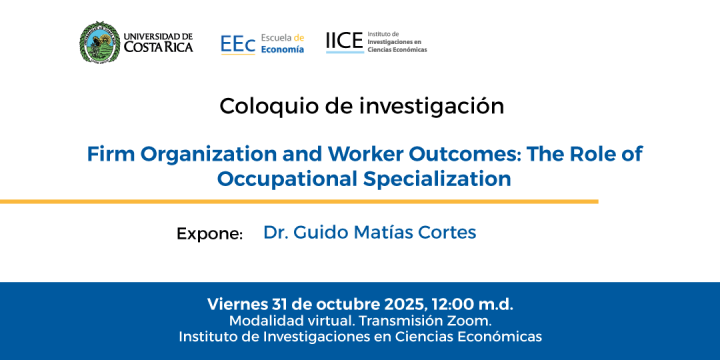Matricula de suficiencia I Ciclo 2026

Using matched employer-employee data from Portugal, we show that firms differ
starkly in their occupational employment composition, even within detailed
industries, with some firms employing workers across a broad range of
occupations and others being much more specialized. These differences are
robustly predictive of wages: a worker employed in an occupationally-specialized
firm earns less than that same worker employed in a less specialized firm. The
wage penalty for working in an occupationally-specialized firm is observed across
occupations and industries of all skill levels, and is distinct from the penalty
associated with working in a firm with fewer organizational layers. Specialization
helps account for the role of firms in inequality, as specialization is strongly
negatively related to estimated AKM firm fixed effects. Around 50-60% of the wage
penalty from specialization is explained by differences in firm productivity.
Specialized firms, however, also engage in lower rates of rent-sharing conditional
on productivity, accounting for up to one-quarter of the difference in wage premia
between high- and low-specialization firms. Finally, we show that being employed
in a specialized firm is also associated with worse longer-term career outcomes for
workers.
Expositor:
Dr. Guido Matías Cortes
Detalles:
Viernes 31 de octubre 2025, 12:00 m.d.
Modalidad virtual
Zoom:
https://udecr.zoom.us/j/84617289582?pwd=IoDuyRErGzzObwyFvSKBqmIEcFPHM
q.1
ID de reunión: 846 1728 9582 Código de acceso: 630894
Transmisión FBLive Instituto de Investigaciones en Ciencias Económicas